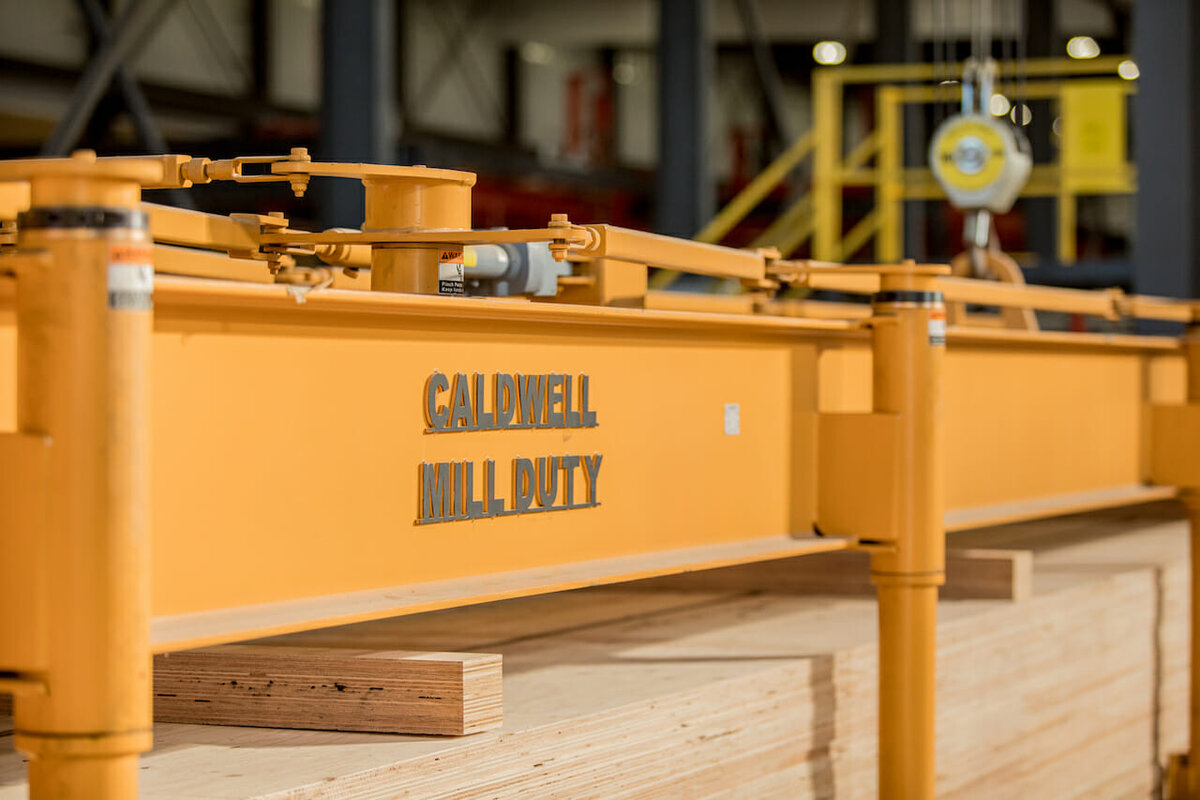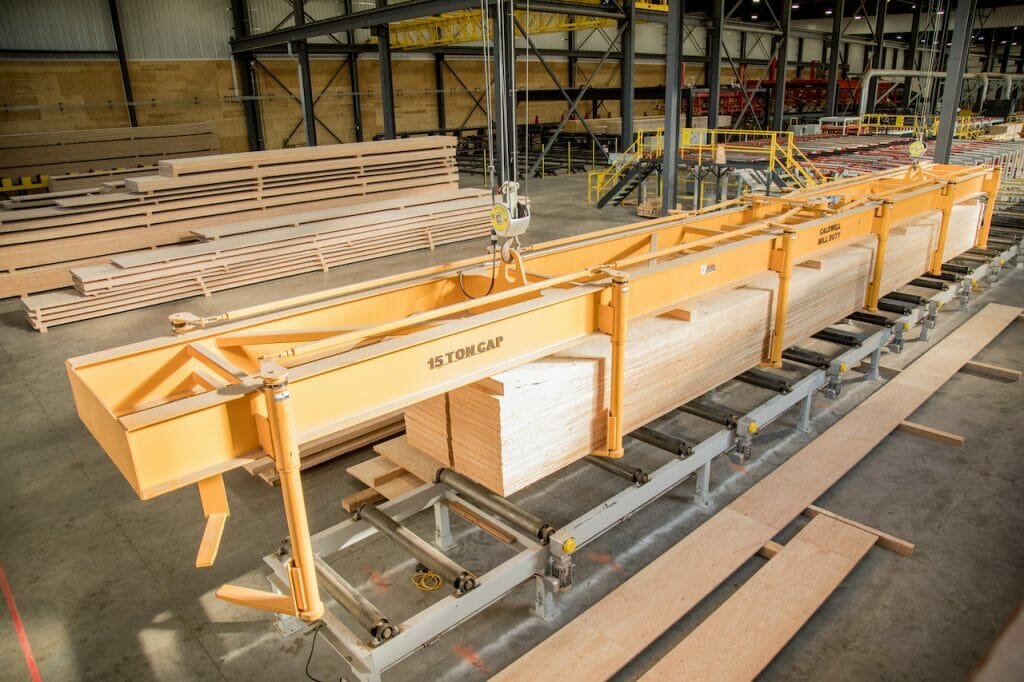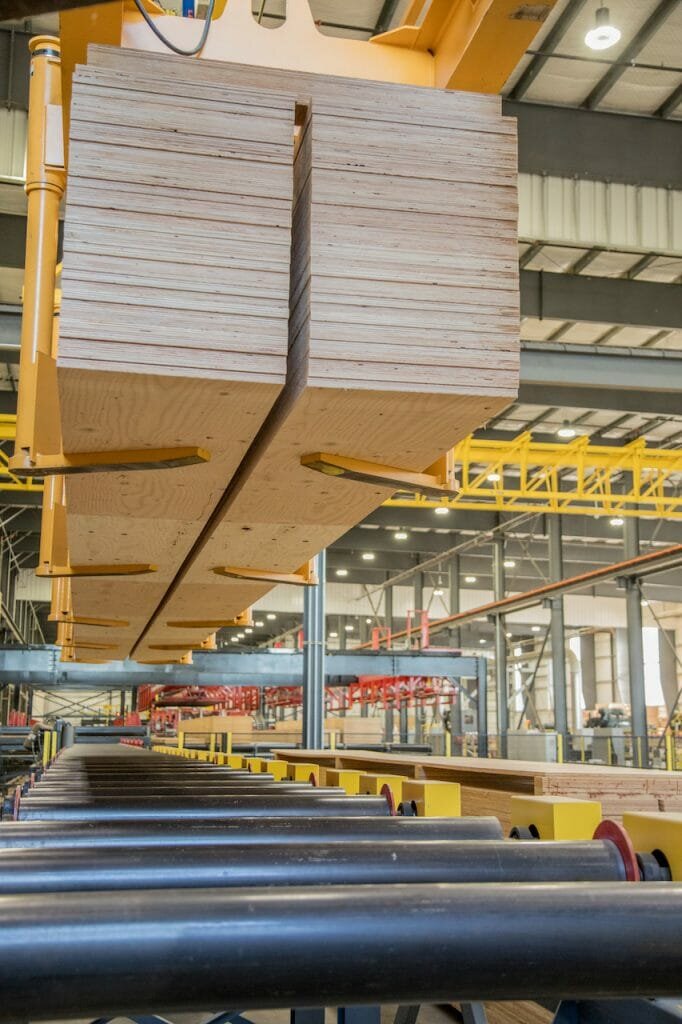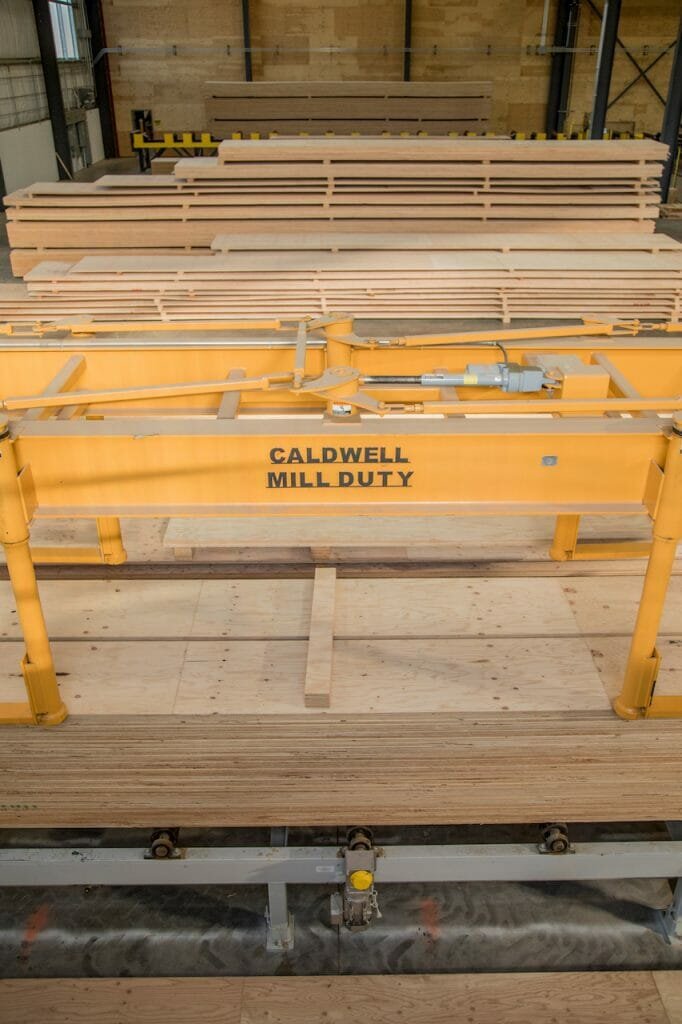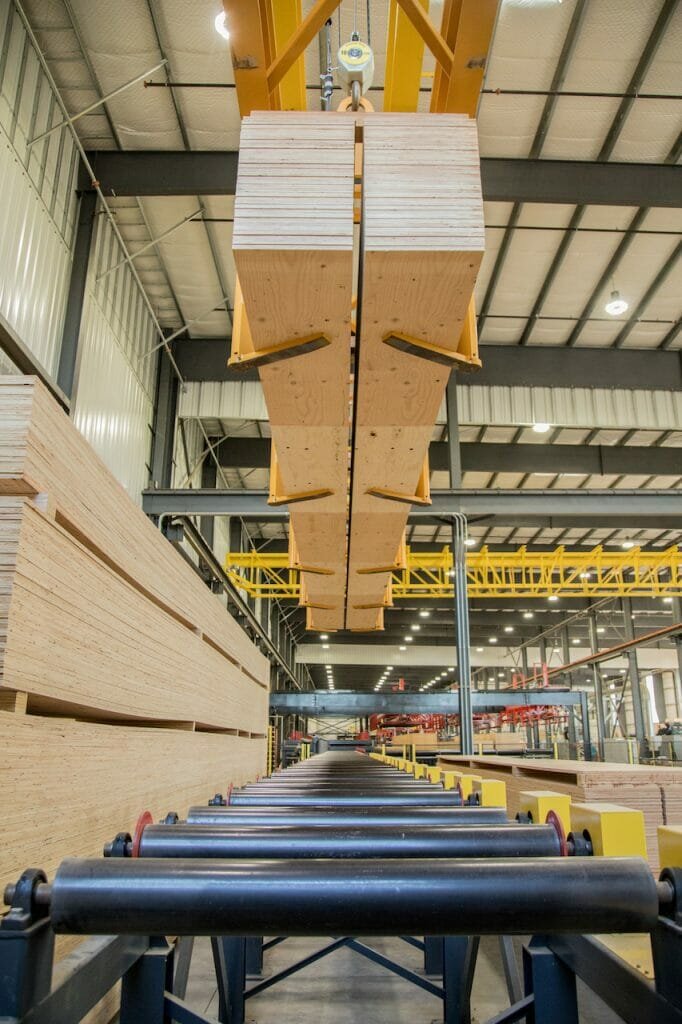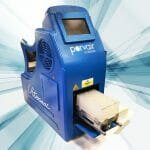Freres Lumber Co. Inc. is using a custom below-the-hook attachment, manufactured by Caldwell, to lift long lumber loads at its Mass Ply Panel (MPP) facility in Lyons, Oregon.
The 15-ton capacity, 53 ft.-long, motorized rotary leg lumber lifter handles lamellas (thin layers / plates) of structural composite lumber, used to manufacture MPP products. It is attached to a 20-ton capacity overhead crane with two hoists; the lifting equipment and attachment were provided by U.S. Crane & Hoist, also of Oregon (Wilsonville).
“I was confident in Caldwell,” said George Beaudoin, general manager at U.S. Crane & Hoist. “Having worked with them for a number of years, I knew that they had a wide range of product solutions as well as the ability to design custom lifting solutions. The Freres team and I discussed a few different options and ideas. Lumber applications can present some challenges due to the length of the loads as well as the width. There are times when the long loads require multiple hoists operating in a tandem-lift scenario and there are other times when a custom lifting device is a better solution. As crane manufacturers, it is extremely helpful for us to be able to work with a company like Caldwell. It gives us the ability to make sure we are providing the best possible solution to the end user.”
The crane, hoists and lifter combine to lift product from a roll case and place it into inventory. The maximum unit dimensions that the motorized lifter picks is 60 ft. long by 30 in. high by 4 ft. wide. This is approximately 600 cubic ft. of material at 37 lbs. per cubic ft., which weighs a little over 11 tons. The lifter itself weighs another 6 tons.
Kyle Freres, vice president of operations at Freres Lumber, said: “We knew we needed to pick extremely long units, and we were aware that lumber lifters had been utilized in the past due to our relationship with LVL [laminated veneer lumber] producers. The lifter was a natural fit for that reason. The 4 ft.-wide units may be made up of 2 ft. by 2 ft. pieces. The lifter is also able to pick a unit from inventory and place it onto another roll case, which delivers the product to the next manufacturing phase.”
The rotary leg lumber lifter, which is in daily use, can effectively lift two bundles of lumber side-by-side, fully supporting them from underneath. Freres explained that the lifter “forks” or “legs” are rotated out parallel to the length of the machine. This allows the lifter to drop on top of the unit of product that is to be picked. Once the “legs” are under the unit they are rotated 60 degrees so that they are below the unit. When the crane starts lifting it picks the package with it. The aforementioned roll cases have rolls spaced so the lifter can set the unit gently onto the case.
Freres added: “Due to the length of our product, and the requirement to pick both 2 ft.- and 4 ft.-wide material, we could not consider a standard sheet lifter. Having units split down the middle and still have the lifter function properly was an important requirement. Our shortest packages are 32 ft. in length and the lifter was required to handle all lengths between there and the maximum [60 ft.].
“It has been very successful; we have had no issues with the lifter that I am aware of. Start-up issues were limited to having to fine-tune the location of the roll cases to work successfully with the lifter legs. We would order another if we had an opportunity to build a facility like our current one, but we have no need of it at the current site.”
Beaudoin said: “At the time, the lifter for Freres was the first custom device that I was involved in. Thankfully, I had worked with Caldwell many times for other devices such as Posi-Turners [Freres has one], gantry cranes, jib cranes, etc. For the Freres rotary leg lumber lifter, Caldwell was my first and only call and they certainly came through.”
The rotary leg lumber lifter has not required any unscheduled service or maintenance.
- The maximum unit dimensions that the motorized lifter picks is 60 ft. long by 30 in. high by 4 ft. wide.
- The 15-ton capacity, 53 ft.-long, motorized rotary leg lumber lifter handles lamellas (thin layers / plates) of structural composite lumber
- Freres Lumber Co. Inc. is using the attachment to lift long lumber loads at its Mass Ply Panel (MPP) facility in Lyons, Oregon.
- The lifter is attached to a 20-ton capacity overhead crane with two hoists.

